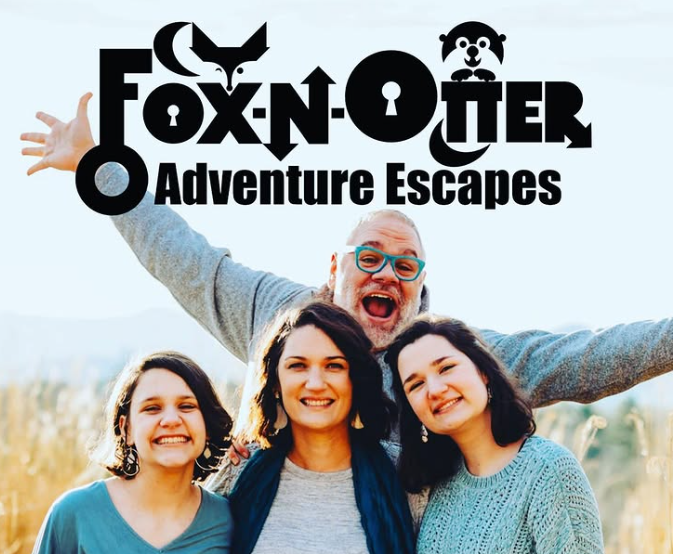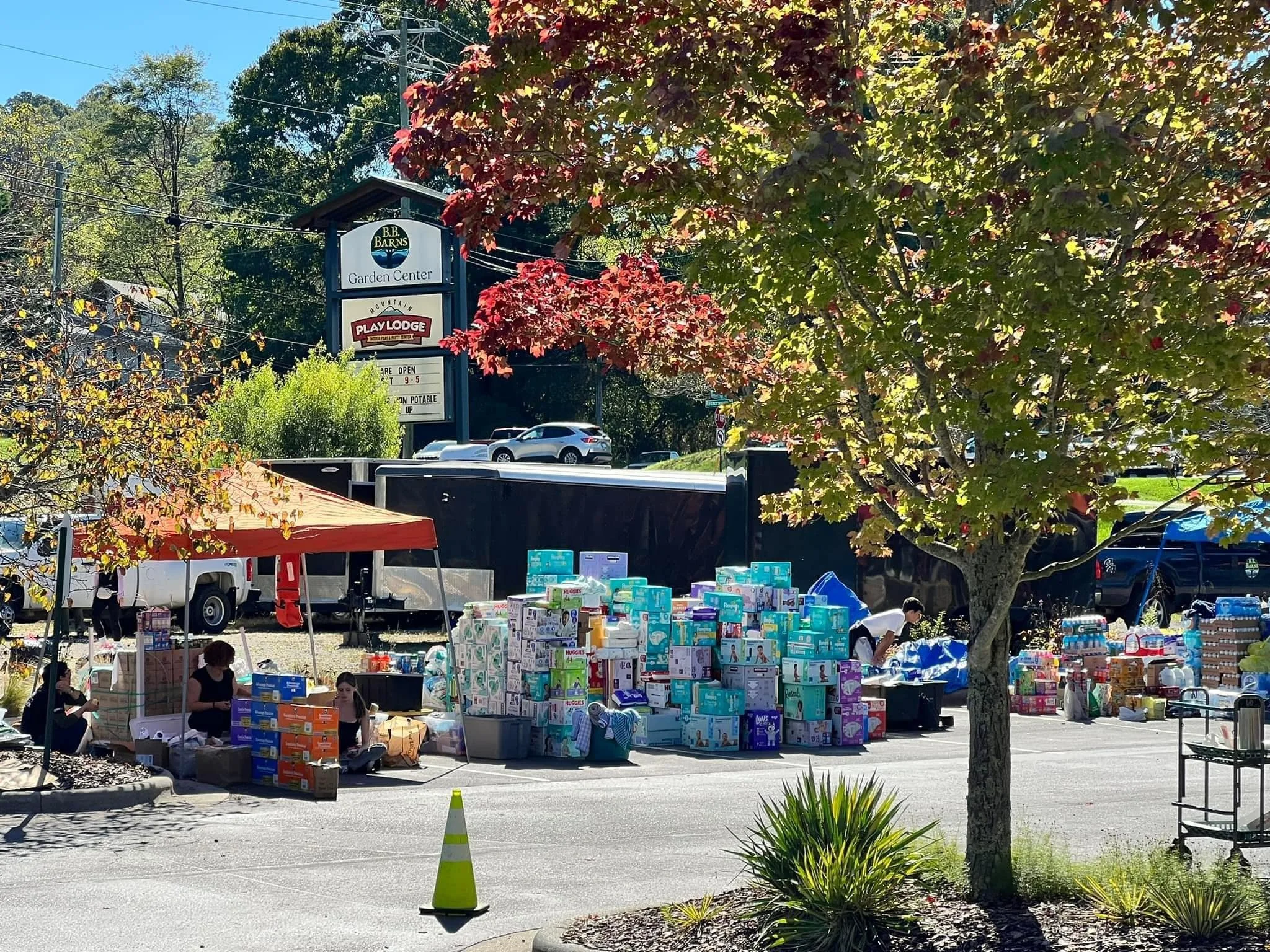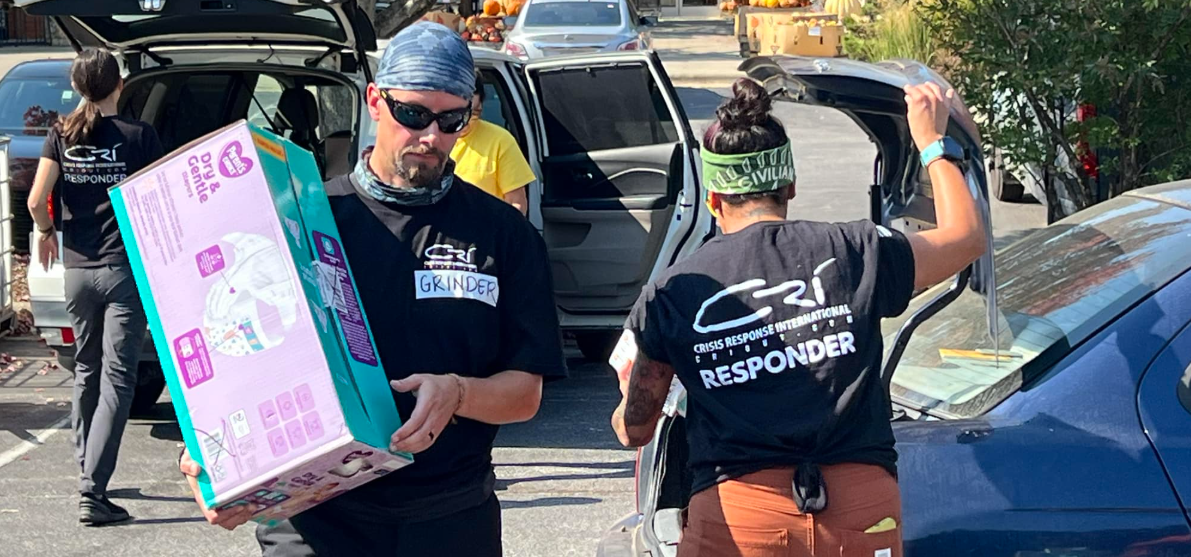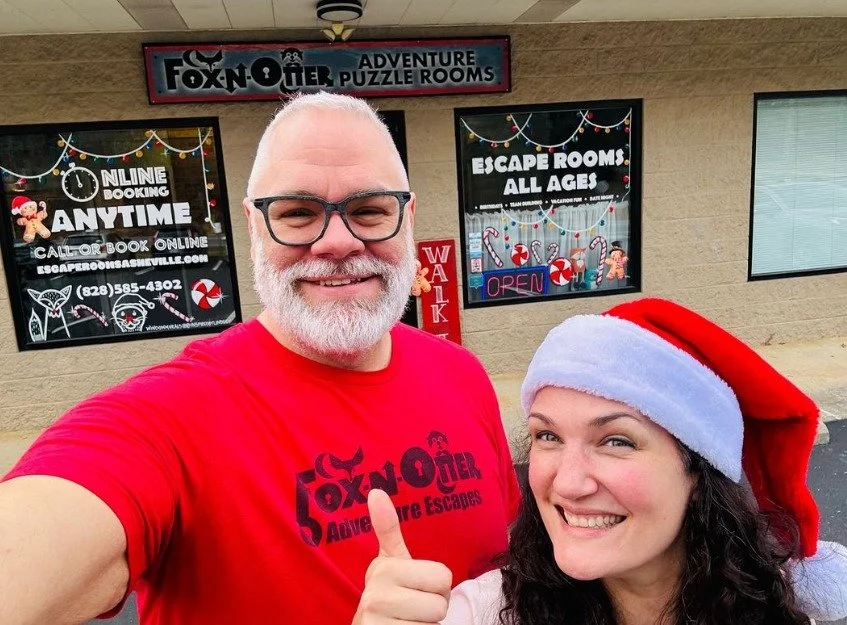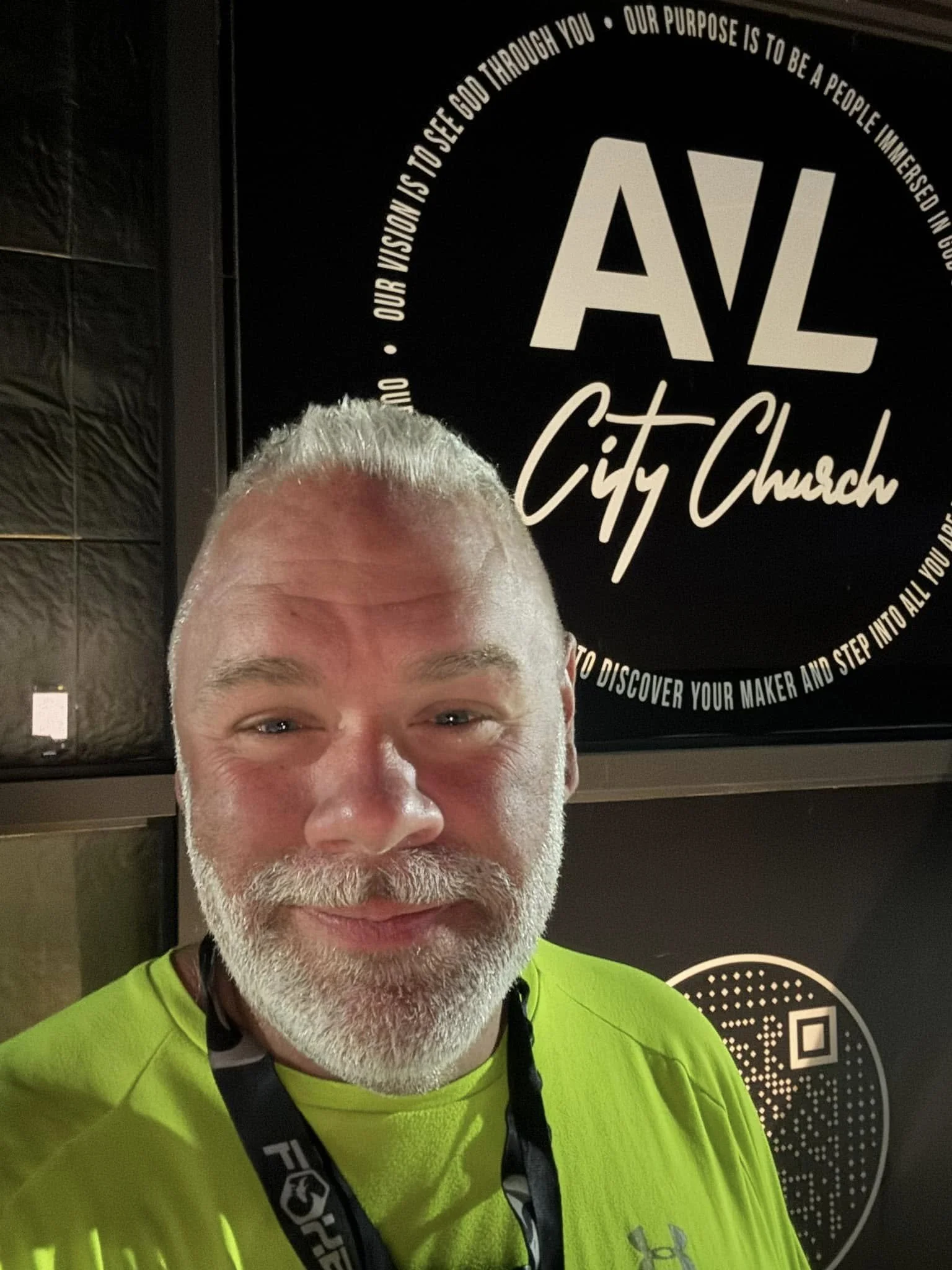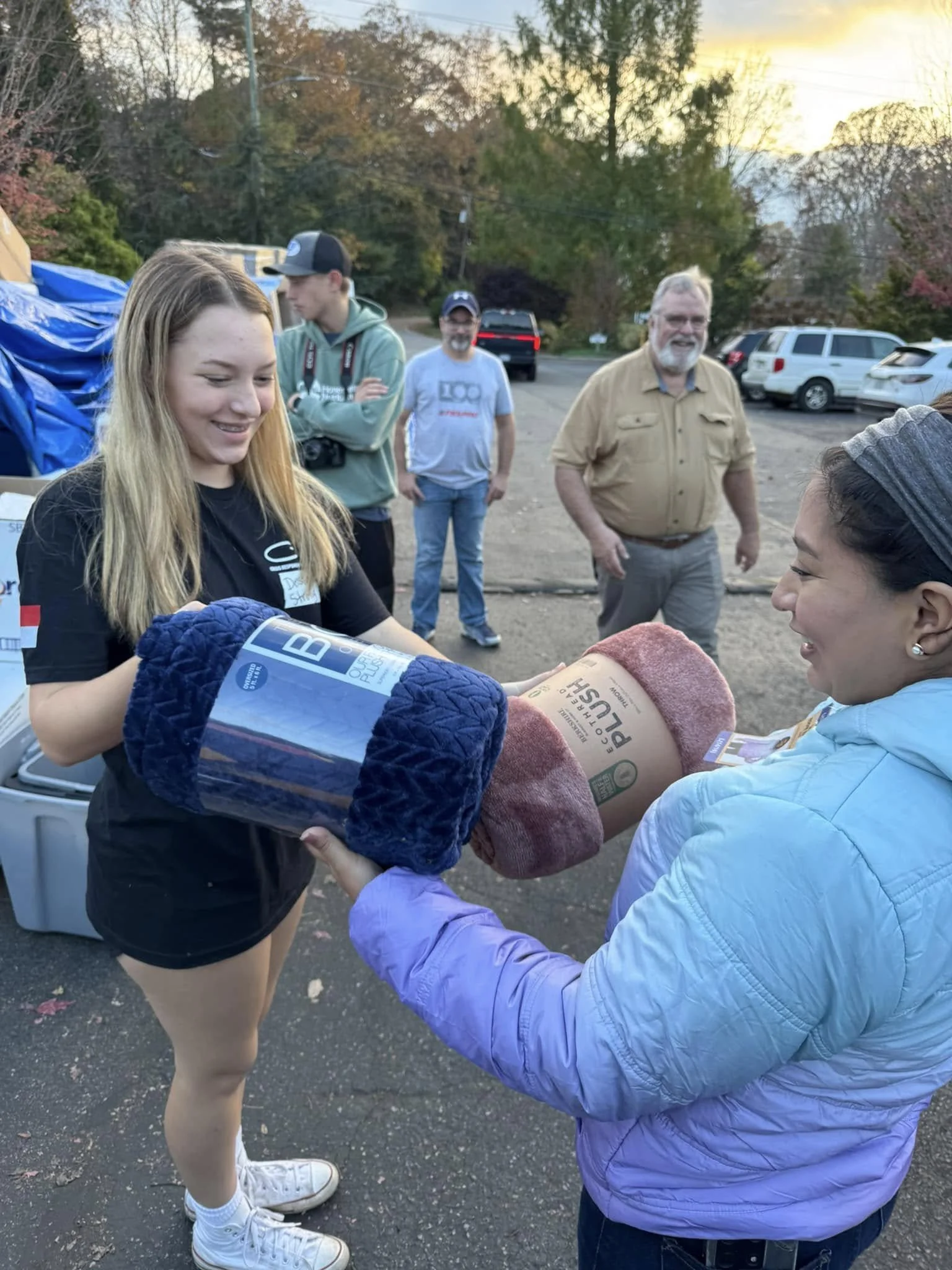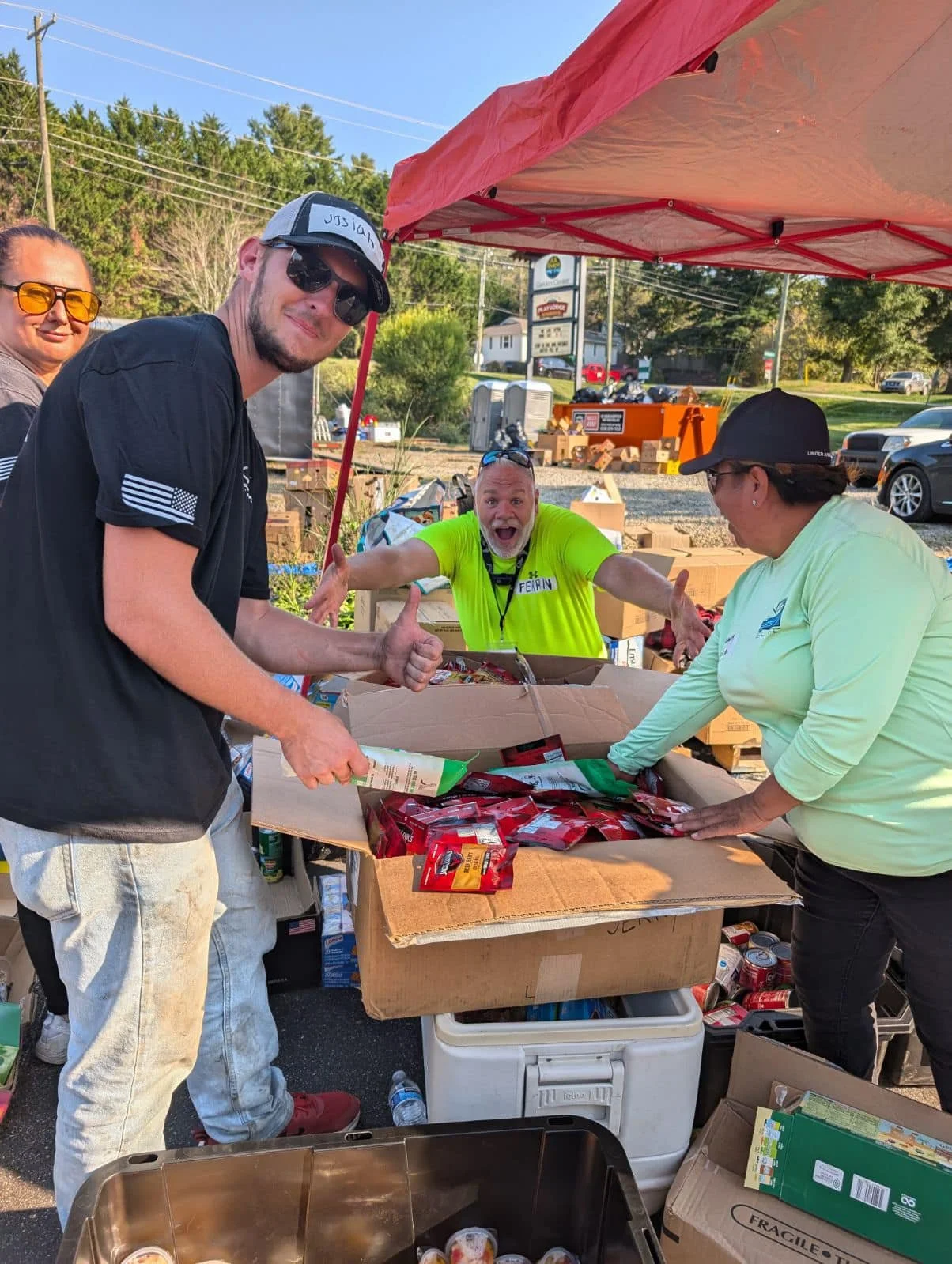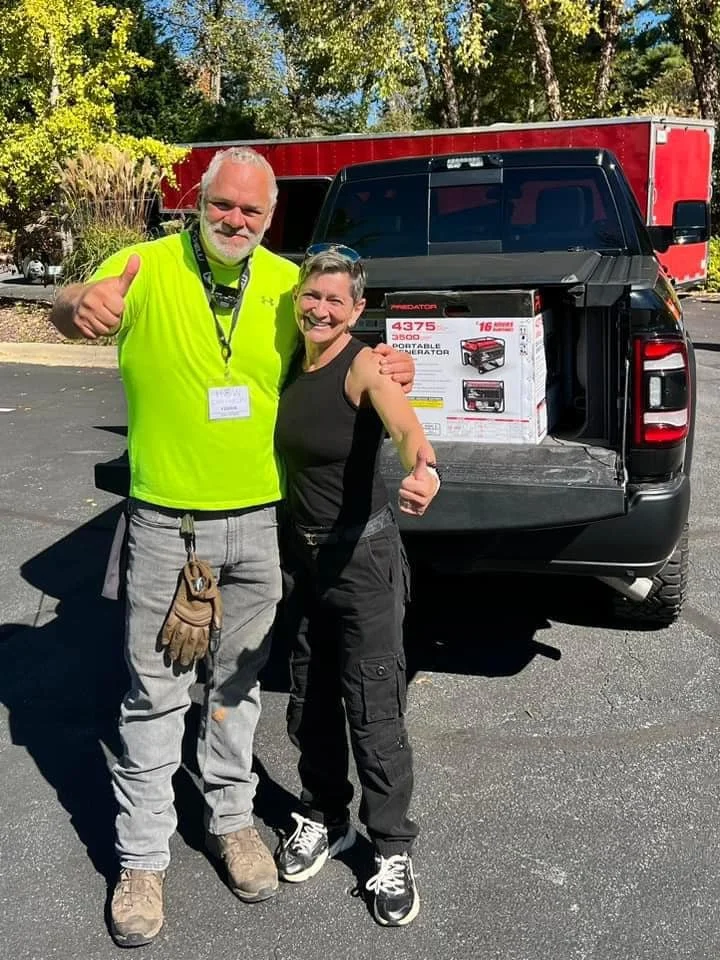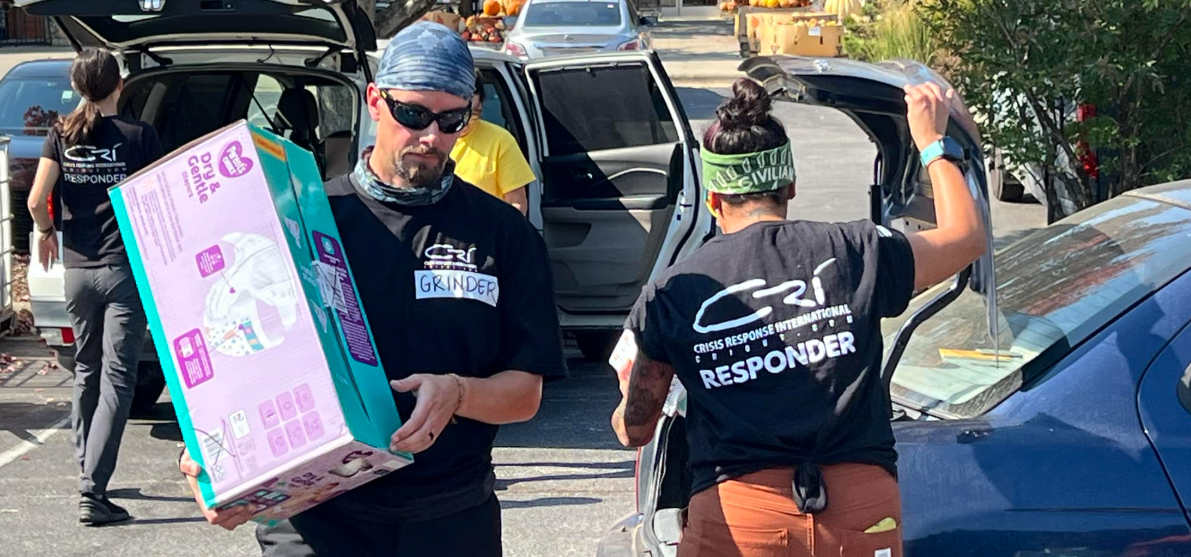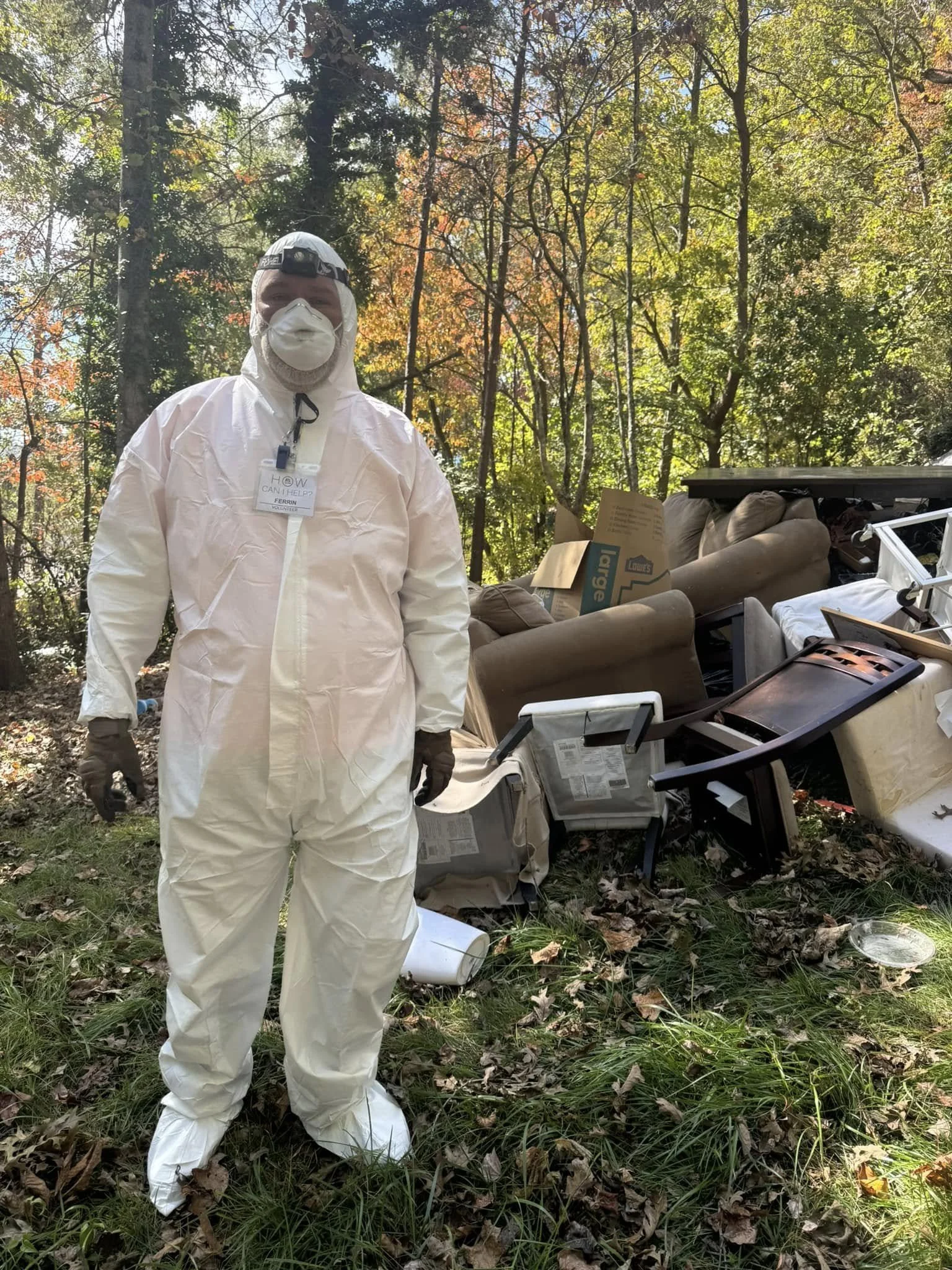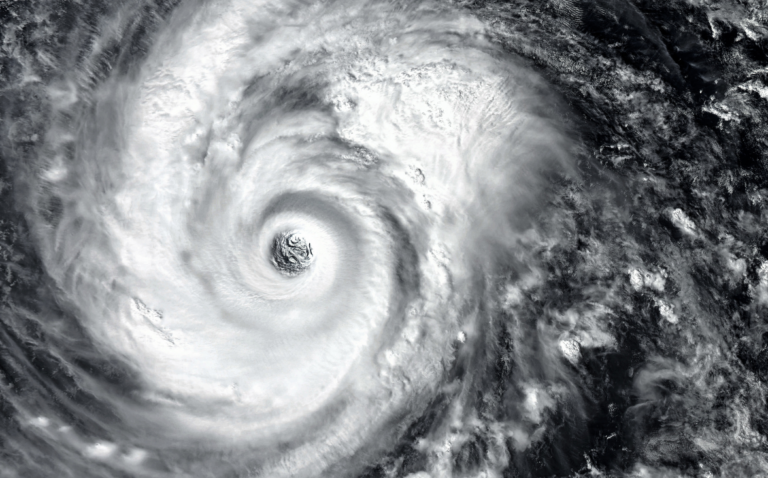BLUF:
Escape room owners, Ferrin and Julie Cole, put their business Fox-N-Otter Adventure Escapes on hold to help the Asheville, and the Western North Carolina area after Hurricane Helene. They provided essential supplies, coordinated volunteers, and helped people recover. Their story highlights the importance of community and resilience in the face of disaster.
When Hurricane Helene slammed into Asheville and Western North Carolina, I knew things were bad. But I never could have anticipated the incredible way Ferrin and Julie Cole, the owners of Fox-N-Otter Adventure Escapes, would step up for their community. They basically put their own lives and business on hold and turned into this amazing crisis response team – along with their community and church!
It's been nearly three months since the storm, and I wanted catch with them and hear their story firsthand. How did they do it? What's been the hardest part? And what's next for Asheville as they rebuild?
Ferrin and Julie have done so much, from handing out essential supplies in those first crazy days to helping folks navigate the long road to recovery. They've even got programs in place to help people deal with the emotional scars left behind by Helene.
In this interview, we'll hear about their experiences with international relief work, the challenges they faced here at home, and how their business is doing now. It's a story of resilience, community, and the power of helping others.
Me: Let's start from the beginning. What initially inspired you to get involved in international relief work?
Ferrin: Well, for me, it started when I was 13. I went to Mexico to build houses on spring break, and that changed my whole outlook on life. It showed me how blessed I was simply to have a roof over my head and running water and electricity. From that year on, I've always gone to another country to help people less fortunate.
Me: That's amazing. And you've worked in crisis response in numerous countries. Can you share a particularly impactful experience from your international relief work?
Ferrin: There have been so many. Working in Afghanistan helping blind women start a business, working in Ukraine evacuating the elderly, women, and children from cities being invaded by Russian forces, building wheelchairs in Guatemala, or building orphanages in Africa for fleeing child soldiers have really shaped my heart for crisis response.
Me: It sounds like you've seen a lot of hardship.
Ferrin: Yes, but also a lot of resilience. In Nicaragua, where we work, children die of fevers or are disabled for life from a fever that 10 cents worth of Tylenol could have prevented. The urgency to help comes from watching innocent people die in needless wars who could have been evacuated. Once you know brain damage in children caused by fevers is preventable and common in other countries, the question of how to help is simply logistics. Everyone has something they own and some skill they possess to help someone else.
Me: That's a powerful message. And it's clear that this "why" behind your escape rooms was always to help others. Can you elaborate on that connection?
Ferrin: My wife Julie and I live on purpose. Our purpose is not to provide ourselves with a stable financial life for ourselves or our children. We live responsibly and invest in our business to use the profits to impact the lives of others. We can go without if it means others can have the things they need. Our comfort is not a high priority. Our purpose is to live intentionally using everything we have including skill, ability, knowledge, resources including all our finances and time to serve others in need. So business is just a means to that end.
Me: That's incredibly inspiring. How has your experience with Fox-N-Otter prepared you for this relief work?
Ferrin: If you can design problems for a living, you can solve them. As escape room owners, we literally create enjoyable problems for work with logical solutions. Now consider the unenjoyable problems in our community and beyond. Logical solutions are logistic challenges that answer “how can we solve this?” When we didn’t have power or water for a month or more in Western North Carolina, you immediately begin problem-solving like an escape game. I’m being serious. What items do we have access to in this area that provide the answer? How can we communicate and work together to solve the problems for the most immediate need? Every house with trees down on it is an escape house. That’s your theme. How do we get everyone out safely? How do we clear driveways and roads for emergency medical services? How do we keep people warm and dry and safe?
“If you can design problems for a living, you can solve them. ”
Me: I love that analogy! So, let's talk about Hurricane Helene. Can you describe the moment you realized the needs of Asheville outweighed the concerns for your business?
Ferrin: The sheer devastation we experienced on September 27th in the Asheville area was sobering. One in every three houses in our neighborhoods and community had trees on them. Flooding washed away entire communities 8 miles away. There’s no power and no running water. You can’t leave your street let alone neighborhood, and every road, (yes, every road) has at least one tree laying across it. Cars are of no use. No power. No internet. No cell service. No water. Some looting and security issues are immediate. This is as close to a war zone or EMP (Electro-Magnetic Pulse) scenario as possible. Honestly, whether you owned a restaurant, daycare, trade stocks for a living, or design and operate three escape room locations for a living— business becomes secondary to immediate needs. We saw hundreds of business owners stop selling their product and stop offering their services in order to meet community needs. We are no different.
Me: You have extensive experience in international crisis response. What surprised you most about facing a crisis in your own backyard?
Ferrin: If you go to a community you don’t live in, you can emotionally partition much easier, you are there to serve, help, provide closure for families by recovering the deceased. Emotionally you can distance yourself from the population you are serving because you don’t intimately know and love them. Our teams did search and rescue, body recovery shortly after the storm in some of the worst areas. I had to remove myself from these teams and focus on different logistic problems because these are my neighbors. I live here. I know people. The children being found are in my community. I could not emotionally partition and continue effectively because this work HERE came with all the feels. What is usually not traumatic for seasoned helpers in crisis was traumatic because the context was, “this is where I live.”
Hurricane relief supplies staged and ready for distribution.
Learn more about ongoing needs
Me: That makes sense. It must have been incredibly difficult. Can you describe your process for identifying the most urgent needs and getting supplies to those in need "immediately"?
Ferrin: With no water, power, means of digital communication for days, weeks, and in some places a month or more, wellness checks in person are necessary. You go door-to-door and tell everyone you meet to do the same. You have bonfires on the corner with neighbors in the evening and have a huge white board in your front yard with information. Everyone looks after everyone- that’s what you teach at every house. The most vulnerable are always the highest priority. So the elderly with oxygen machines and cpap machines are the highest on the list, then diabetics and those with special medical needs, then the disabled, then people who live alone and children.
Me: You've provided essential items like propane, fuel, and water. Are there any specific stories of the people you've helped that have particularly resonated with you?
Quick Facts and Impact:
991 volunteers served over 21,000 hours
Distributed over 30,000 hot meals
Hauled and disposed of 589,000 pounds of debris
Over $3.4M in impact in Western NC
Ferrin: The teams we led ultimately were made up of 991 volunteers that served over 21,000 hours. They prepared and distributed over 30,000 hot meals, provided hundreds of Sawyer filtration solutions, hauled over 589,000 pounds of debris to the dump, and unloaded 106 of the 53 foot semi trailers that we see hauling freight on the highways. Together we had well over $3,400,000 in impact here in Western North Carolina. But the successes that resonate with me the most are the most basic ones. Every day we delivered drinking water to the disabled elderly folks who live in our community— those were the biggest wins!
Me: What are the most pressing needs of the community now, three months after the initial crisis?
Ferrin: Initial crisis needs are search and rescue and recovery, then cleanup, infrastructure stabilization, and resource management and arrivals. After that comes rebuilding which is the stage we are in now. If you can fix roofs, we can use you because we need skilled laborers donating their time to the population on fixed income. We need cdx 4x8’s lumber for decks and porches and trusses. We need tar paper and roofing nails. We need new appliances for people who lost them.
Me: Many people associate crisis response with immediate needs like food and shelter. What are some of the less visible, long-term challenges that communities face?
Ferrin: New floodplains are being redrawn, there have been zero provisions in Buncombe County for emergency rebuilding regarding inspections, contractors, or accessory dwelling units. Tiny homes are extremely restricted here, so no shed or tiny home without a poured foundation, full electrical and water hookup, and permitted and inspected sewer or septic solution is allowed. All those tiny homes you saw on social media being built can’t be used here. Locals all knew that. So it has been hard to see all that money wasted. Solutions have to abide by existing laws or flexible local government needs to accommodate them. Neither has happened. The only thing local government has done was expedite the permit processes. It usually took weeks for an inspection before the hurricane due to a backlog and lack of inspectors. You can imagine the problem now with more than 100,000 homes damaged.
Me: Are there specific programs or initiatives you've implemented to address the ongoing physical and emotional needs of those affected?
Ferrin: There will never be enough help. Help must come with hope every time. I partner with Crisis Response International and they are the people I called the day after the storm using a satellite connection. They came within 12 hours with dozens of people and mobile kitchens and more. They believe help and hope are always the solution to meeting a community need. They have provided ongoing resources for both help and hope. Just yesterday we were able to purchase and deliver 8 new kitchen ranges (ovens and cook-tops) to people in need.
Learn more about Crisis Response International’s ongoing relief effort.
Me: How has this experience impacted your perspective on disaster preparedness and community resilience?
Ferrin: Everyone needs a community. People who live without a network of people on their side looking out for them will become the most vulnerable immediately. I saw hundreds of churches mobilize immediately and respond to needs where the government still has not arrived. I am NOT anti-government, I just don’t believe they are the solution for helping in a catastrophic circumstance like a natural disaster of this scale. You don’t need to own a generator and water bricks and purification system and have a food source. You just need to be a part of a community that does. Positioning yourself in a community before a disaster event is crucial for resource management and planning.
“Everyone needs a community. People who live without a network of people on their side looking out for them will become the most vulnerable immediately. ”
Me: Have you partnered with any local organizations or government agencies in your relief efforts?
Ferrin: I work primarily with Crisis Response International and AVL City Church. I’ve worked with them around the world. I trust them with my life. There’s no CEO or executives at the top being paid well. In fact their leadership makes well under what they should by industry standard. The CEO of Crisis Response International slept on the ground with the teams here- he didn’t manage it from an air conditioned office off-site. He put in 16 hour days of work like everyone else. They run a lean operation and re-wash foil pans, they use primarily volunteers and multiply every dollar with partner resources and often matching donors. I don’t have high trust in large organizations, government or otherwise. I’ve worked for them and with them many times. I don’t speak ill of them, we all work together. Smaller organizations are always more efficient. Always seek out 100% funds (with zero overhead admin cost) or designate donations so that your money doesn’t go to waste.
Me: Let's shift gears a bit and talk about your business. You mentioned that you hadn't even checked on the status of your business in the initial days of the crisis. What was it like returning to Fox-N-Otter after focusing on relief work?
Ferrin: Tourism is absolutely crippled in our local economy and will be for a few seasons. Our business has support from locals, but locals don’t have money due to being unemployed or underemployed for 2-4 weeks after the storm. We depend heavily on tourism for profits. We are sustainable with low tourism but definitely taking a massive loss. It’s okay. It can feel stressful if you need to control all that. We haven’t ever been in control of that and certainly are not now. We have peace knowing the God who does control all of this sees us and knows us intimately and actually cares for us. If you believe such a thing, disaster comes without worry.
Me: Did you find that your experience with crisis management in other countries helped you navigate the challenges of reopening your business?
Ferrin: COVID closures and the chaos of those years probably contributed more to our navigating the closures we faced here with this hurricane. COVID was a crisis we all learned from. It definitely informed our business accounts regarding emergency expense pads before this hurricane and allows us to keep our head above water financially. COVID closure seasons taught us that we aren’t smarter than anyone else, we don’t have to be, we just need to last longer in lean seasons and we will emerge with significant market share again.
Me: Has this experience changed your approach to running your business in any way?
Ferrin: Yes. My wife Julie has been managing our staff and business expansion and more since I pivoted to full-time relief work. Julie has always been a founder and involved owner but she has completely done a stellar job without me since the day of the storm.
Me: Have you seen a change in customer engagement or community support for your business since the crisis?
Ferrin: Sadly, like every business in our area we are dependent on tourism. Hotels, restaurants, entertainment, and every industry is suffering and many are closing. An estimated 30% of businesses here will shutter. Really.
Links:
Crisis Response International https://criout.com
AVL City Church- https://www.avlcitychurch.com/relief
Ferrin Cole: https://www.facebook.com/TheAshevilleGuy
Fox-N-Otter Adventure Escapes:https://escaperoomsasheville.com/
About the Author
About the Author:
Brian Vinciguerra is a retired Marine and is the co-founder and chief marketing officer of Cracked it! Escape Games in Jacksonville, North Carolina.


